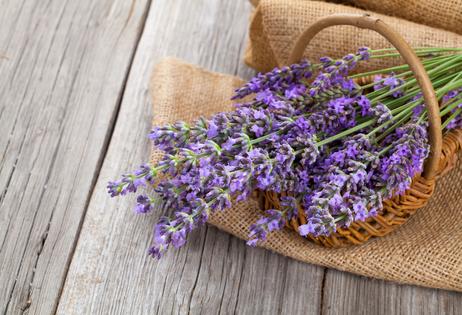Environmental Nutrition: Lavender beyond aroma; health impact of altitude
Q: I'm seeing lavender used in recipes, is it safe?
A: Lavender, a member of the mint family, has a sweet floral flavor that is intensified with drying. Dried lavender is part of the mixture of herbs called Herbes de Provence, but it can be used safely alone as a flavoring for baked goods, desserts, and beverages.
Lavender as a medicinal herb and oil extracted from fresh flowers has been used topically and orally to treat many maladies, but is there proof that it's effective and safe? When used as a medicinal herb or oil, lavender is Generally Recognized as Safe (GRAS) for adults but not for children or pregnant or lactating women.
There is some evidence that it is effective for treating anxiety and some forms of post-operative pain. There is insufficient evidence to support lavender's use for cancer, eczema, constipation, depression and insomnia, though anecdotally people have reported positive effects from lavender aromatherapy as an aid to sleep. There have been preliminary reports of lavender oil in shampoos, soaps and lotions causing gynecomastia (breast development) in boys so caution is recommended in this group.
--Sharon Salomon, M.S., R.D.
Q: Does altitude impact my nutritional status?
A: At higher altitudes, often defined as 1,500 meters (4,900 feet) above sea level, atmospheric pressure begins to affect human physiology. As altitude increases the amount of oxygen in the air decreases, making it more difficult to breathe and function normally. The human body can adapt by increasing the size of red blood cells, which are more adept at carrying oxygen. Adaptation can take days or even weeks and altitude sickness can impact individuals at any time until adapted. Symptoms include nausea, headaches, fatigue and vomiting. Decision-making may be negatively impacted which can then exacerbate symptoms. Specific conditions, including high blood pressure, heart disease and emphysema can be worsened, too.
The most important nutritional consideration is water, as dehydration worsens the symptoms of altitude sickness. Higher altitudes often mean dry, cold air, which increases water loss. Carbohydrates are the fuel of choice at higher altitudes, but often the best foods for those traveling to higher altitudes are the ones that are palatable and do not cause additional stomach distress. --Matt Ruscigno, M.P.H., R.D.
(Environmental Nutrition is the award-winning independent newsletter written by nutrition experts dedicated to providing readers up-to-date, accurate information about health and nutrition in clear, concise English. For more information, visit www.environmentalnutrition.com.)







